Honda Jazz vs Toyota Yaris - Differences and prices compared
Compare performance (122 HP vs 280 HP), boot space and price (23100 £ vs 21900 £ ) at a glance. Find out which car is the better choice for you – Honda Jazz or Toyota Yaris?
Costs and Efficiency:
Looking at overall running costs, both models reveal some interesting differences in everyday economy.
Toyota Yaris has a barely noticeable advantage in terms of price – it starts at 21900 £ , while the Honda Jazz costs 23100 £ . That’s a price difference of around 1243 £.
Fuel consumption also shows a difference: Toyota Yaris manages with 3.80 L and is therefore a bit more efficient than the Honda Jazz with 4.50 L. The difference is about 0.70 L per 100 km.
Engine and Performance:
Power, torque and acceleration say a lot about how a car feels on the road. This is where you see which model delivers more driving dynamics.
When it comes to engine power, the Toyota Yaris has a decisively edge – offering 280 HP compared to 122 HP. That’s roughly 158 HP more horsepower.
In acceleration from 0 to 100 km/h, the Toyota Yaris is convincingly quicker – completing the sprint in 5.50 s, while the Honda Jazz takes 9.40 s. That’s about 3.90 s faster.
There’s also a difference in torque: Toyota Yaris pulls noticeable stronger with 390 Nm compared to 253 Nm. That’s about 137 Nm difference.
Space and Everyday Use:
Beyond pure performance, interior space and usability matter most in daily life. This is where you see which car is more practical and versatile.
Both vehicles offer seating for 5 people.
In curb weight, Toyota Yaris is slightly lighter – 1090 kg compared to 1302 kg. The difference is around 212 kg.
In terms of boot space, the Honda Jazz offers barely noticeable more room – 304 L compared to 286 L. That’s a difference of about 18 L.
When it comes to payload, Toyota Yaris evident takes the win – 525 kg compared to 388 kg. That’s a difference of about 137 kg.
Who wins the race?
The Toyota Yaris proves to be leaves the rival little chance and therefore becomes our DriveDuel Champion!
Toyota Yaris is the better all-rounder in this comparison.

Toyota Yaris
Costs and Consumption
View detailed analysis
Engine and Performance
View detailed analysis
Dimensions and Body
View detailed analysis
Honda Jazz
The Honda Jazz is a supremely practical small hatch that hides clever packaging and more usable space than it lets on, with friendly styling and an unfussy charm. It’s economical to run, easy to park and perfect for buyers who want reliable, versatile daily motoring without the hassle.
details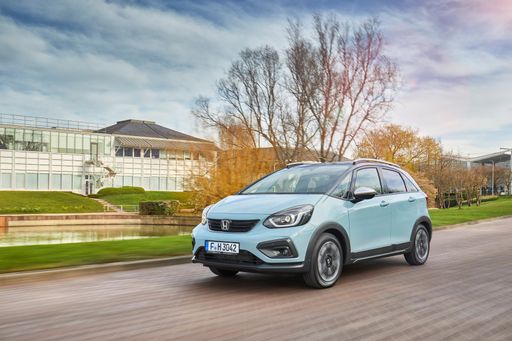
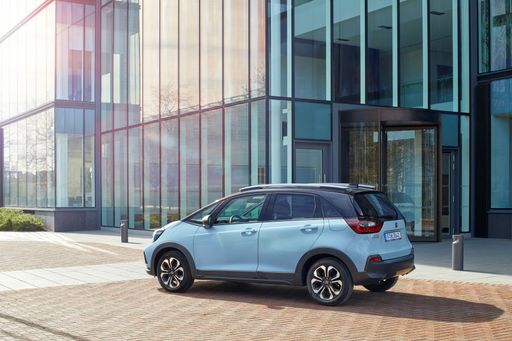
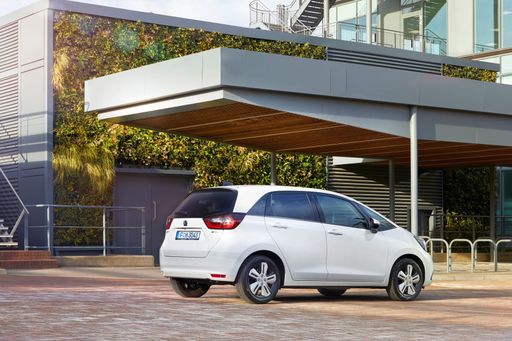
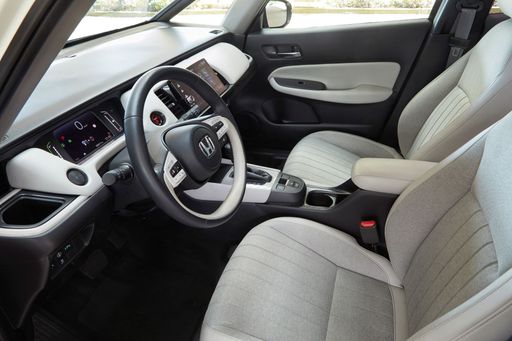
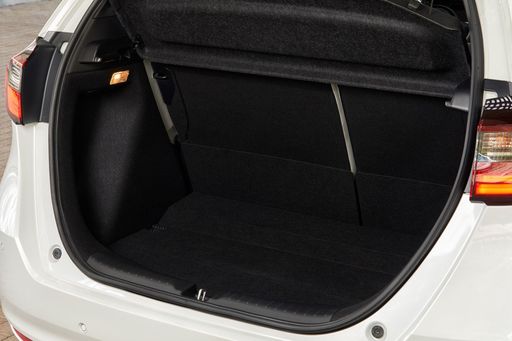
Toyota Yaris
The Toyota Yaris is a sprightly city hatch that packs clever packaging, surprising comfort and fuel-sipping manners into a neat, easy-to-park package. It rewards sensible buyers with low running costs, friendly ergonomics and a forgiving drive, delivered with Japanese reliability and just enough personality to make errands feel a little less ordinary.
details

Costs and Consumption |
|
|---|---|
|
Price
23100 - 26700 £
|
Price
21900 - 46700 £
|
|
Consumption L/100km
4.5 - 4.8 L
|
Consumption L/100km
3.8 - 9.5 L
|
|
Consumption kWh/100km
-
|
Consumption kWh/100km
-
|
|
Electric Range
-
|
Electric Range
-
|
|
Battery Capacity
-
|
Battery Capacity
-
|
|
co2
102 - 108 g/km
|
co2
87 - 215 g/km
|
|
Fuel tank capacity
-
|
Fuel tank capacity
36 - 50 L
|
Dimensions and Body |
|
|---|---|
|
Body Type
Hatchback
|
Body Type
Hatchback
|
|
Seats
5
|
Seats
4 - 5
|
|
Doors
-
|
Doors
3 - 5
|
|
Curb weight
1302 - 1321 kg
|
Curb weight
1090 - 1356 kg
|
|
Trunk capacity
304 L
|
Trunk capacity
141 - 286 L
|
|
Length
-
|
Length
3940 - 3995 mm
|
|
Width
-
|
Width
1745 - 1805 mm
|
|
Height
-
|
Height
1455 - 1500 mm
|
|
Max trunk capacity
-
|
Max trunk capacity
935 L
|
|
Payload
369 - 388 kg
|
Payload
289 - 525 kg
|
Engine and Performance |
|
|---|---|
|
Engine Type
Full Hybrid
|
Engine Type
Full Hybrid, Petrol
|
|
Transmission
Automatic
|
Transmission
Automatic, Manuel
|
|
Transmission Detail
CVT
|
Transmission Detail
CVT, Manual Gearbox, Automatic Gearbox
|
|
Drive Type
Front-Wheel Drive
|
Drive Type
Front-Wheel Drive, All-Wheel Drive
|
|
Power HP
122 HP
|
Power HP
116 - 280 HP
|
|
Acceleration 0-100km/h
9.4 - 9.7 s
|
Acceleration 0-100km/h
5.5 - 9.7 s
|
|
Max Speed
-
|
Max Speed
175 - 230 km/h
|
|
Torque
253 Nm
|
Torque
390 Nm
|
|
Number of Cylinders
4
|
Number of Cylinders
3
|
|
Power kW
90 kW
|
Power kW
85 - 206 kW
|
|
Engine capacity
1498 cm3
|
Engine capacity
1490 - 1618 cm3
|
General |
|
|---|---|
|
Model Year
2025
|
Model Year
2024 - 2025
|
|
CO2 Efficiency Class
C
|
CO2 Efficiency Class
B, G
|
|
Brand
Honda
|
Brand
Toyota
|
Is the Honda Jazz offered with different drivetrains?
The Honda Jazz is offered with Front-Wheel Drive.




